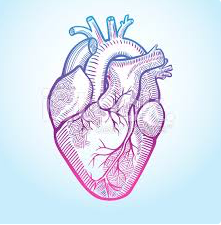Our physician-scientists are using a combination of human and animal genetic model systems to unravel the genetic mechanisms of congenital heart disease, with the ultimate aim of improving  therapies and preventive strategies.
therapies and preventive strategies.
In Dr. Paul Grossfeld’s laboratory, scientists use genetically engineered mouse models to study the mechanisms of how loss of ETS-1 causes congenital heart defects. Specifically, his lab has recently found that conditional deletion of ETS-1 in the neural crest causes ventricular septal defects, the most common congenital heart defect in Jacobsen syndrome, through a cell autonomous mechanism. In collaboration with Dr. Alexey Terskikh, they have been able to generate neural crest cells from patients with mutations in the ETS-1 gene and congenital heart defects. Interestingly, they have found that patients with ETS-1 mutations and congenital heart defects have impaired neural crest cell migration, paralleling their observations in ETS-1 knockout mice.
Their current focus is on identifying the gene regulatory pathways involving ETS-1 in the neural crest cells, which could lead to the identification of therapeutic targets. Through a collaboration with Dr. Marianne Bronner and Dr. Shuyi Nie, Dr. Grossfeld’s lab has developed an animal model for hypoplastic left heart syndrome (HLHS). Preliminary studies have identified a putative signaling pathway that is affected by the loss of ETS-1 and have found that the HLHS phenotype can be rescued by grafting normal progenitor heart cells early in heart development. In addition to the neural crest, Dr. Grossfeld’s lab is focusing on the role of the endocardium in normal heart development and how loss of the ETS-1 gene may affect endocardial function and lead to the development of HLHS.
Dr. Grossfeld has also extended his studies to understanding the genetic basis of intellectual disability and behavioral problems. This research has led to the identification of several disease-causing genes, which have now provided the basis for gene-based therapeutic clinical trials. Dr. Grossfeld also serves as the cardiology consultant for U.S.A. Volleyball. This involves the development of a comprehensive screening program for the athletes and has led to the recent identification of a previously undiagnosed team member with Marfan syndrome and a life-threatening aortopathy.
Check out Dr. Grossfeld’s research webpage by clicking the link below:
https://medschool.ucsd.edu/som/pediatrics/research/labs/grossfeld-lab/Pages/default.aspx